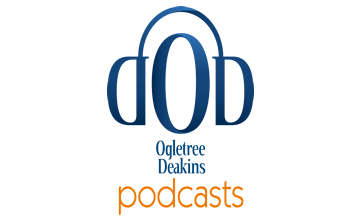Podcast: Play in new window | Download (Duration: 25:36 — 35.2MB) | Embed
Subscribe: Apple Podcasts | Spotify | TuneIn | More
In this podcast, shareholders Chris Near (Columbia) and Lauren Hicks (Indianapolis, Atlanta) discuss federal contractors’ and subcontractors’ obligations in unwinding Executive Order (EO) 11246, which mandates affirmative action programs for women and minorities. Lauren and Chris focus on the new administration’s EO 14173, the ongoing requirements for affirmative action programs for veterans and individuals with disabilities, and the necessary adjustments contractors must make to their policies, self-identification processes, and internal communications.
